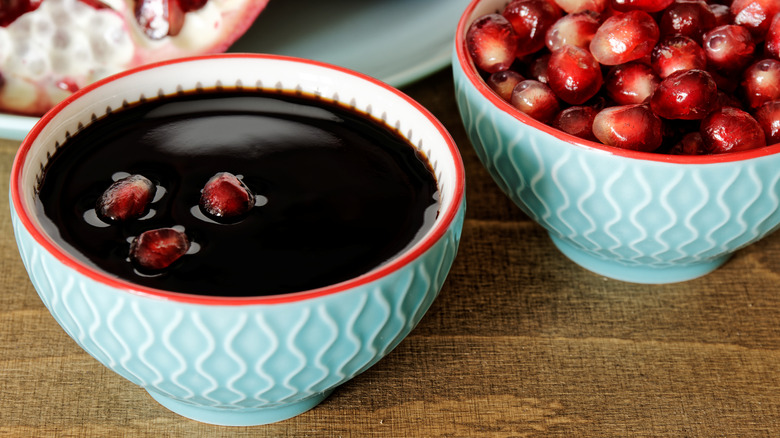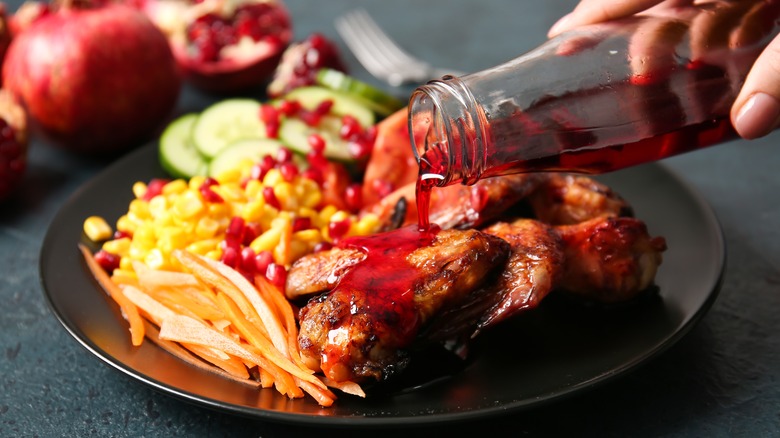The Sticky Ingredient Addition You Need To Elevate Skillet Chicken
Searing chicken in a skillet is a simple technique to ensure a succulent piece of meat for a weeknight meal or a quick bite. However, there's one sticky ingredient you need that adds a punchy, sweet depth of flavor to your skillet chicken: pomegranate molasses.
Pomegranate molasses is easy to use as a marinade or glaze for this specific dish. It's often found in the international section of your grocery store or can simply be homemade. As a marinade, consider mixing yogurt with garlic, honey, salt, and pomegranate molasses and coating your chicken for at least 30 minutes at room temperature or in the fridge for at least 12 hours before cooking.
As a glaze, mix around 2 tablespoons of olive oil with 1/3 cup of pomegranate molasses (and a pinch of salt). After you pan sear your seasoned chicken (thighs and legs are preferred to maximize juiciness), brush them with your prepared glaze and finish them in the oven. For a candied tang, consider combining pomegranate molasses with honey to taste. The end result will add a bright crisp and crunch to the outside of your skillet chicken.
Pomegranate molasses adds flavor while tenderizing and browning your chicken
Pomegranate molasses has a tradition of being a flavor enhancer in the Middle East, where pomegranate trees grow in abundance. While its origin is not entirely known, concentrating pomegranate juice was likely a preservation method for the fruit.
Essentially, pomegranate molasses is pomegranate juice that's been cooked down into a tart and sticky syrup. This ingredient can be found in dishes across the Middle East like an Iranian fesenjoon — a sweet and savory chicken stew — or a Turkish lamb kofta — a spiced ground meat often formed into meatballs or kebabs.
Pomegranate molasses offers a burst of acidity to cut through the fatty unctuousness in meats, making it the perfect addition to a vinaigrette or as a substitute for a balsamic glaze. As a marinade, pomegranate molasses makes your chicken more tender and allows for better color because the sugars in it will caramelize the outside of your meat during cooking. It even works drizzled, unadulterated, atop roasted vegetables.

